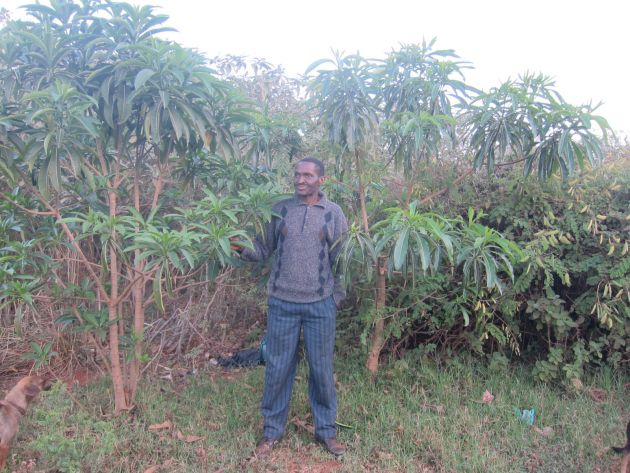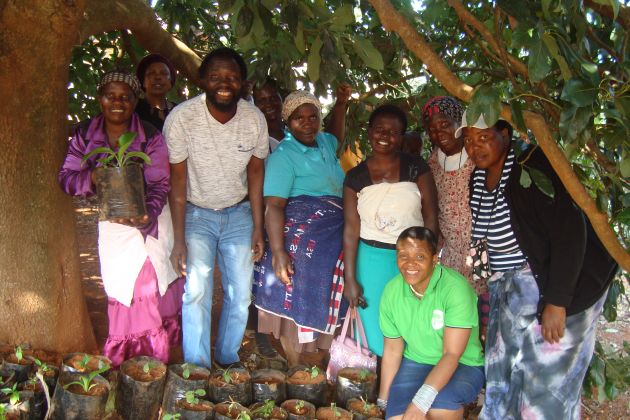Restoration of the Mudzinga River by Dzomo La Mupo in the Vuvha community South Africa
Fundraising campaign by
Natasha Constant
-
ZAR1,000.00raised of R30,000.00 goal goal
No more donations are being accepted at this time. Please contact the campaign owner if you would like to discuss further funding opportunities
Campaign Story
Background to the Project
We are seeking funding to support a rural community to erect a fence along the Mudzinga river and wetland in the Limpopo Province of South Africa.
Mphatheleni Makaulule from Venda is the Director of the community-based ogranisation Dzomo La Mupo (http://www.thedzomolamupo.org) meaning Voice of Mother Earth. Mphatheleni grew up in the village of Vuvha where her father was a traditional leader, traditional health practitioner and farmer. Mphatheleni’s father worked to protect the important water source for the village, the Great Mudzinga River which communities were dependent upon for water. The Great Mudzinga River means a river which deafens the ears of its listeners and is one of the most important water sources which flows through the village of Vuvha. The Mudzinga and other important rivers such as the Tshitamboni, Lutanandwa, and Vilimadi all originate from Vuvha wetlands. The Mudzinga is a tributary of the Great Mutshedzi that also flows to the north into Nzhelele River and then proceeds into the Limpopo River which is a national river that joins the Indian Ocean. Previously the wetland and reeds (Madzhesi and Midulu) were full of ferns and reeds that blanket the flow of the river which were only harvested in the correct season and used to make sleeping matts for the community.
Mphatheleni’s father worked hard to prevent people from cutting down trees for firewood, digging soil for clay, and people were preventing from bathing with soap in the river. From 1986, when Mphatheleni was 17 years of age her father became old and was no longer able to protect the river this also coincided with a time when cultural beliefs were changing. Mphatheleni was driven by concerns that the Vhavanda cultural values were being eroded alongside the indigenous forests which was being destroyed by local people. Younger people in the village were also being becoming disconnected from their cultural roots and their elders. Mphatheleni had a vision to protect the Mudzinga River and its tributaries and during this time her brother Ravhutsi Makaulule started a project in the Vuvha community and named it the Vuvha Rivers and Mountains Environment Care Project. The project’s priority is to start to rehabilitate the Mudzinga River.

Previous efforts to restore the Mudzinga River
Dzomo La Mupo have undertaken replanting of 1000 indigenous trees alongside the banks of the Mudzinga river. In 2017, Dr Natasha Constant from the U.K came to work with Dzomo La Mupo to research the importance of plants and forests to local communities. In 2018, she worked with the Vuvha community to create eco-maps of the territories of the community to identify priority areas to plant trees to rehabilitate important rivers. The Mudzinga River was identified as the most important wetland and river to concentrate tree planting activities because of its importance to the local people. Currently, Dzomo La Mupo have trained several women from Vuvha to create 12 plant nurseries with close to 4000 local tree seedlings which will support tree planting efforts. Dzomo La Mupo will uplift and empower these women to create projects to generate income for their families by selling these indigenous seedlings.
Challenges of Protecting the Mudzinga River
Historically and today the Mudzinga River, is an important water source for rural communities for animals, and drinking water, washing clothes and supplying agricultural fields with water to grow their crops. Today the Great Mudzinga River is running dry which has negatively impacted water quality, flow and the surrounding riverine habitats. Dr Natasha Constant and a student from the University of Venda came to work with the community to understand the problems facing the river and its protection through a baseline survey interviewing different member of the communities. It was found that many younger generations were disconnected from the river and its importance and failed to understand how the river provides an important water source for people in their households. Furthermore, it was found that the river is full of rubbish from baby nappies, dead animals, detergent boxes from washing clothes and human waste. The Mudzinga fountain where people fetch drinking water is close to the primary schools of children aged 7-11 years’ old who go to drink water when the government taps run dry. Some community members have dammed the river with cement to funnel water to their agricultural fields. The people from the church also fetch water from the river for healing and drinking. Ravhutsi Makaulule engaged with the senior traditional leaders to remove the cemented dam from the river which was running dry.
The problem is further exacerbated by human activities such as the cutting down of indigenous trees for firewood, veld fires and littering of the forest. The river is also threatened by people extracting sand and soil on the banks of the river which cause the formation of large dongas from soil erosion. To highlight these issues Dr Natasha Constant, is working with Dzomo La Mupo, to write a management plan to support Vuvha Rivers and Mountains Environment Care Project.
Actions needed to restore the Mudzinga River
Therefore, the funds will be used to further support this work. Our priority is to first make a fence around the spring and the wetland of the Mudzinga River to prevent people from damaging the source of the river and other important tributaries that other communities depend upon. For example, this project will support the flow of other rivers downstream such as the Mutshedzi and Nzhelele which flows to the Limpopo River into the Indian Ocean, an international water system. Presently, women of Vuvha with the youth have planted over 200 trees in January 2020 with the support of the government of the Vhembe District. In the future we also plan to gather the community to share the management plan and to raise awareness of the importance of this river and as a learning opportunity for community members. This project will also serve as a demonstration project for the Vhembe Biosphere Reserve where this work is situated.
Organizer
- Natasha Constant
- Research Support
No updates for this campaign just yet
Donors & Comments
- Natasha Constant
- Donated on Nov 29, 2019
Good luck with the project, very happy to be a part of it :)




Good luck with the project, very happy to be a part of it :)